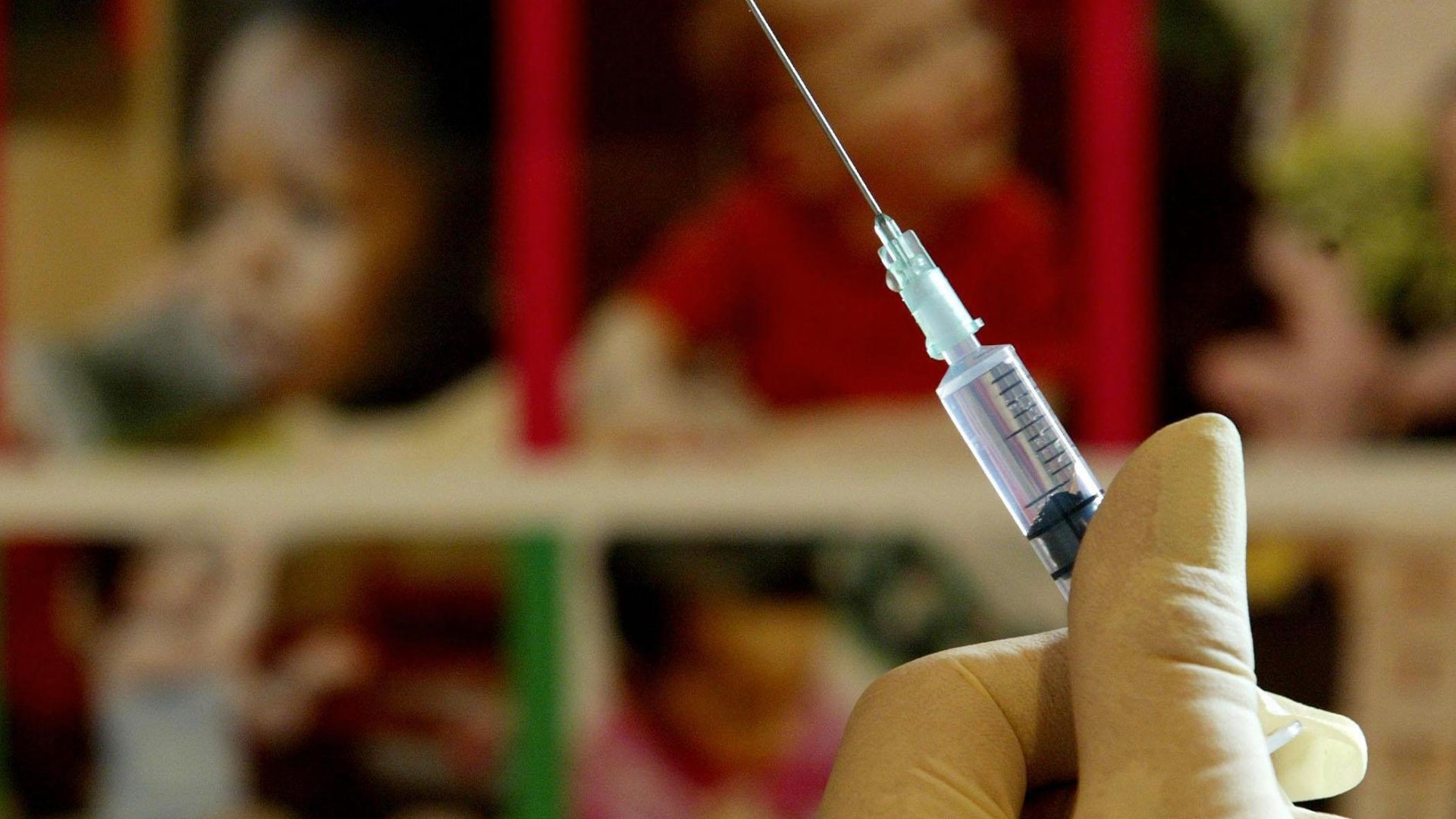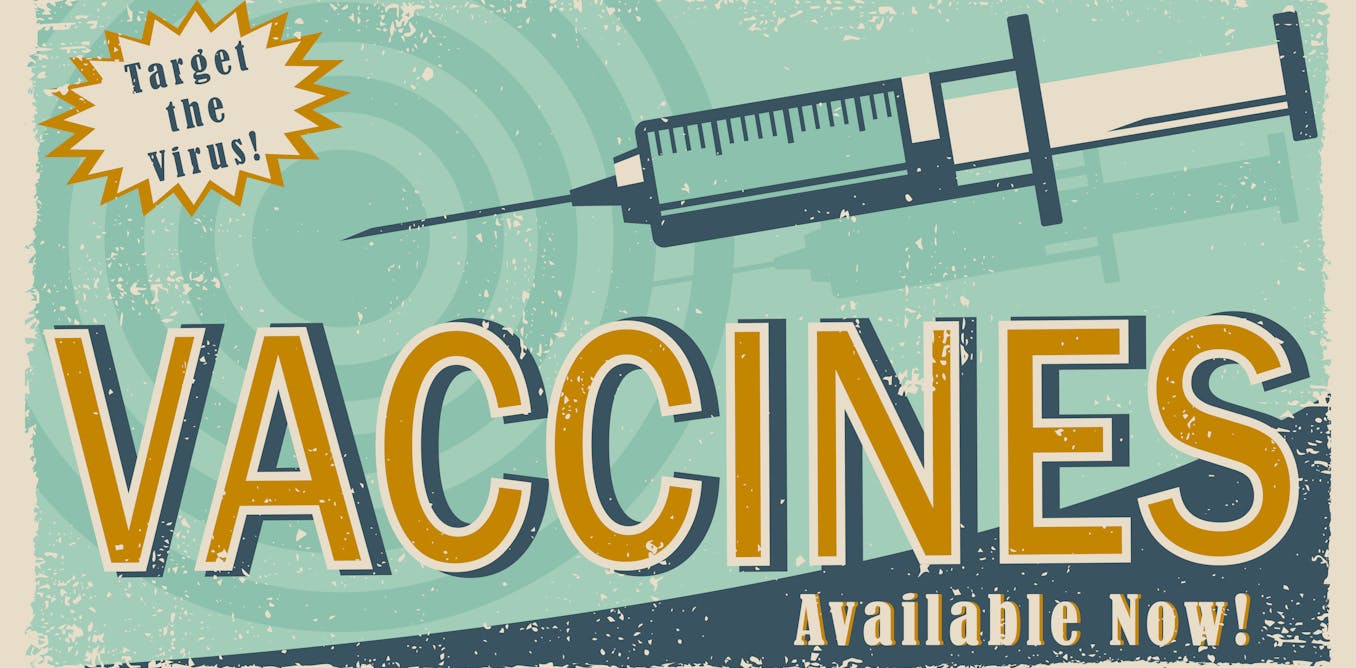VACCINATE now to avoid the flu, NHS chiefs have warned – after new figures reveal 18,000 have died of the bug since 2022.
It comes as experts fear a ‘tripledemic’ of viruses is poised to strike this winter.
3

3
There was a drop in people having the flu jab across all eligible groups in England last year, according to the UK Health Security Agency (UKHSA).
One in four (41.4 per cent) people in clinical risk groups were vaccinated last winter compared to 49.1 per cent in the previous year.
Some 32.1 per cent of pregnant women also had the jab, down from 35 per cent, while uptake among two and three-year-olds was around 44 per cent, down from 42.3 per cent and 45.1 per cent respectively.
Uptake among older people remained high but still declined year on year, falling to 77.8 per cent from 79.9 per cent in those 65 and over.
New figures show that 18,000 people died from the bug during the last two years, despite last winter being a relatively mild flu season.
Dr Gayatri Amirthalingam, deputy director of immunisation at UKHSA, said: “As winter approaches we see many dangerous viruses circulating in our communities including flu, which can tragically kill thousands of people every year.
“Getting vaccinated ahead of winter is by far your best defence.
“If you’re pregnant or have certain long-term health conditions you are at greater risk of getting seriously ill.
“Older people and young infants with flu are also much more likely to get hospitalised.”
Millions of people were invited to book flu jabs and Covid-19 boosters from September 23, with appointments starting from October 3.
Those eligible include over 65s, people in clinical risk groups, patients in long-stay residential homes and frontline social care workers.
Over 65s, care home residents and staff, frontline health and social care workers and people in clinical risk groups, including pregnant women, have been offered a Covid booster.
A new vaccine for respiratory syncytial virus (RSV) was also rolled out for the first time in the UK last month, with pregnant women and adults aged 75-79 invited to book.
Parents are also being urged to get their children vaccinated ahead of a potential surge ‘tripledemic’ surge of infections once the school year gets going.
Meanwhile, data also shows World Health Organisation targets of 95 per cent vaccination for under-fives are being missed in England.
This includes the six-in-one jab which protects against whooping cough, polio and tetanus, as well as the measles, mumps and rubella vaccine.
Steve Russell, national director for vaccinations and screening at NHS England, added: “Today’s data showing there were almost 20,000 deaths associated with flu over the past two winters is a shocking reminder that this is a seriously dangerous virus.
“I urge those who are eligible to book their vaccine appointment as soon as they can as it is our best way of protecting those who are vulnerable as winter approaches.”
ARE YOU ELIGIBLE FOR THE FLU JAB?
The NHS offers a free flu jab to those most at risk of getting the virus so if you qualify then you can get it free anywhere that offers it.
This can be at your doctor’s surgery as well as supermarket pharmacies like Asda and high street favourites like Boots.
If you’re not in the eligible groups entitled to a free vaccination listed below, you can pay for a flu jab at certain stores.
- All children aged two and three
- All children in primary and all children in school Years seven to 11 in secondary school
- Children aged six months to 17 years with certain long-term health conditions
- Those aged six months to under 65 years in clinical risk group
- Pregnant women
- Those aged 65 years and over
- Unpaid carers
- Close contacts of immunocompromised individuals
- Frontline health and adult social care staff
Side effects
Unfortunately, after having the flu vaccine you may get mild fever and slight muscle aches over the next few days.
You may also experience flu-like symptoms – but you won’t actually catch the flu virus once you have had the vaccine.
Common side effects include:
- a runny or blocked nose
- headache
- general tiredness
- loss of appetite
To avoid muscle ache, docs recommend moving regularly, especially the arm in which you received the jab.
But, according to the NHS, serious side effects are “uncommon”.
In the event of a severe allergic reaction staff who give the vaccinations will administer adrenaline, to calm its effect.

3
‘Thought she might die’
A mother whose then four-year-old was hospitalised with flu shared her experience.
Maryam Sheikh, from Manchester, took her daughter Saffy to Royal Manchester Children’s Hospital with a severe cough and high temperature.
She was later referred to a high-dependency unit and required oxygen.
“I was seriously concerned we might lose Saffy,” Ms Sheiakh said.
“I honestly thought she might die from this,” she added.
“I was so distraught watching her struggling to breathe day after day, worried about her breathing difficulties and getting oxygen to the brain – would she be the same little girl before she got ill?”
Saffy, now six, made a full recovery.
Her mother has urged all parents to vaccinate their children.
“Just go and get it, don’t take the risk,” Maryam added. “No parent wants to watch their child suffer like we did with Saffy.”
In a bid to address issues around jab uptake, UKHSA has launched a new campaign with the Department of Health and Social Care (DHSC) and the NHS.
Get Winter Strong will run for 10 weeks on TV, radio and social media channels, urging those eligible to get vaccinated.
Health minister Andrew Gwynne said: “I encourage everyone who is eligible to get their flu, Covid-19 and RSV vaccinations as soon as possible. They are without doubt the best way to protect yourself from these viruses that can cause serious harm.”




